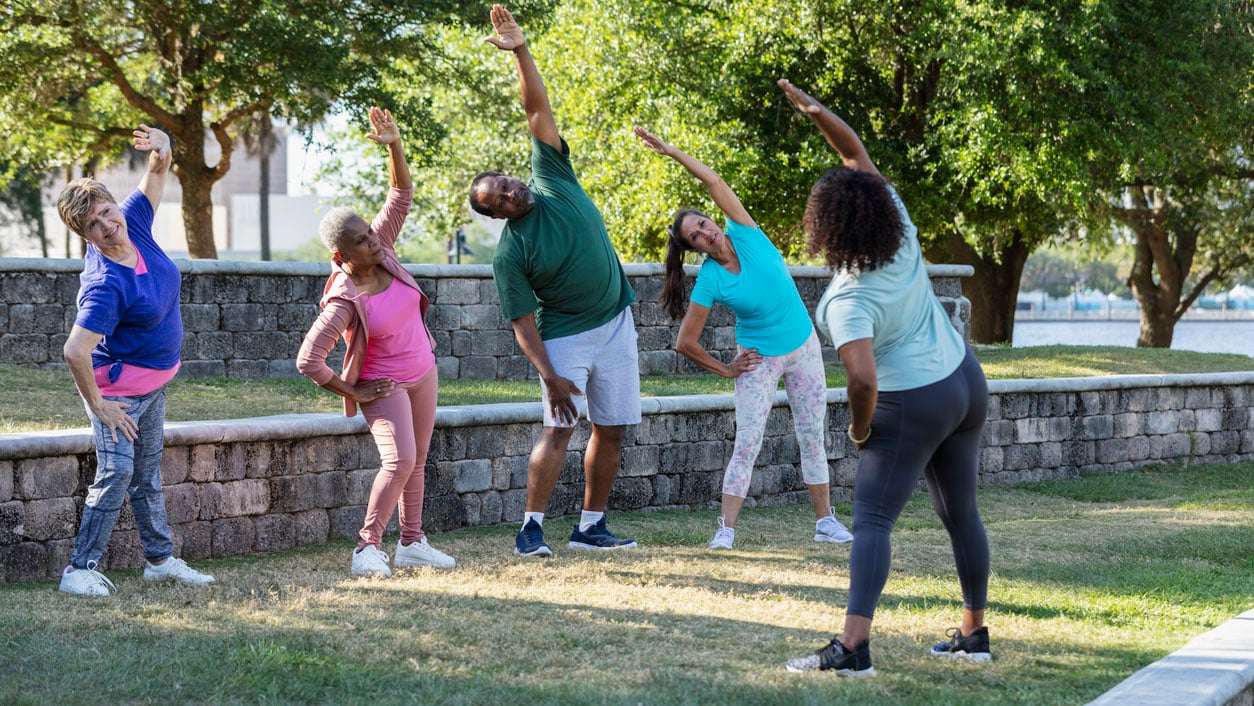At a glance
CDC is investing in the health of adults with arthritis. CDC collaborates with national organizations to improve the health and quality of life for people with arthritis in the United States.

Advancing Arthritis Priorities through National Organizations
In 2021, CDC funded six awards to five national organizations to help people with arthritis. They are funded through the Advancing Arthritis Public Health Priorities through National Organizations cooperative agreement (CDC-RFA-DP21-2106).
This funding supports organizations that run national efforts to advance arthritis public health priorities.
Advancing public health outcomes
During the 5-year award, recipients are expected to advance one or more of these outcomes:
- Improved arthritis management behaviors among people with arthritis.
- Improved social and physical environments for people with arthritis.
- Increased number of health care providers who:
- Screen arthritis patients for function, pain, and physical activity.
- Counsel them on physical activity.
- Refer to proven interventions or physical activity opportunities.
- Screen arthritis patients for function, pain, and physical activity.

Funding components
The cooperative agreement consists of two components:
- Component one—promotes public health strategies to help people with arthritis.
- Component two—builds health providers’ capacity to promote physical activity to reduce arthritis pain and disability.
Each of these is described below.
Component one: Promoting public health strategies
There are five awards supporting this component, ranging from $200,000 to $500,000 each year. Strategies promoted through this component include:
- Strategy A—increases access to, availability of, and sustainability of Arthritis-appropriate, Evidence-based Interventions (AAEBIs) nationwide.
- The National Recreational and Park Association and YMCA of the USA are each funded to reach at least 50,000 people in 25 states.
- The National Recreational and Park Association and YMCA of the USA are each funded to reach at least 50,000 people in 25 states.
- Strategy B—promotes arthritis information for the public and AAEBI referrals through a national Arthritis Helpline.
- With CDC-funding, the Arthritis Foundation runs the Helpline to provide arthritis-specific health information and services. It receives and responds to telephone inquiries (1-800-283-7800) and web-based requests.
- With CDC-funding, the Arthritis Foundation runs the Helpline to provide arthritis-specific health information and services. It receives and responds to telephone inquiries (1-800-283-7800) and web-based requests.
- Strategy C—builds partnerships and coordinates national activities to address osteoarthritis, the most common type of arthritis.
- The University of North Carolina is funded to support an active group of 100+ organizations through the Osteoarthritis Action Alliance. They are addressing priorities identified in A National Public Health Agenda for Osteoarthritis: 2020 Update.
- The University of North Carolina is funded to support an active group of 100+ organizations through the Osteoarthritis Action Alliance. They are addressing priorities identified in A National Public Health Agenda for Osteoarthritis: 2020 Update.
- Strategy D—provides training and technical assistance to enhance the capacity of states to effectively address arthritis.
- CDC funds the National Association of Chronic Disease Directors to identify best practices and develops tools, resources, and trainings.
- CDC funds the National Association of Chronic Disease Directors to identify best practices and develops tools, resources, and trainings.
Component two: Strengthening provider capacity
There is one award supporting this component, with about $500,000 in funding each year.
The National Association of Chronic Disease Directors is funded to:
- Develop and support innovative efforts related to an Arthritis Care Model.
- Pilot test and strengthen activities for health systems.
The new model is expected to enhance health care provider awareness, knowledge, and skills to promote and connect patients with community resources and programs to improve arthritis management and reduce symptoms through physical activity and other self-care strategies.
Physical activity is an effective, drug-free way to relieve arthritis pain, improve function, and limit arthritis progression.
